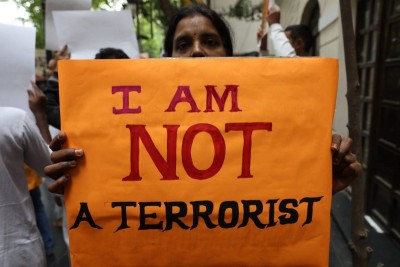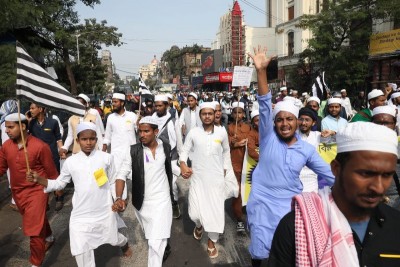 Uttar Pradesh Assembly Elections
Uttar Pradesh Assembly Elections
Campaigning ends for second phase of UP polls, polling on Feb 14
Lucknow/UNI: Campaigning on 55 seats spread over nine districts for the Uttar Pradesh Assembly elections ended on Saturday.
Nearly 2.01 crore voters will decide the fate of 586 candidates in this phase of polling, which will be held on February 14.
Three ministers in the Yogi government are trying their luck in this phase. Suresh Khanna is contesting from Shahjahanpur, Gulabo Devi from Chandausi in Sambhal district, and Baldev Singh Aulakh from Bilaspur seat in Rampur district.
Among the prominent opposition leaders who are contesting in this phase include senior Samajwadi Party (SP) leader Azam Khan from Rampur Sadar, a former minister in the Yogi government, and now SP candidate Dharmpal Singh Saini from Nakur in Saharanpur and Mehboob Ali from Amroha.
As most of the seats in this phase are dominated by Muslims and Dalits it is considered to be a bastion of the Samajwadi Party (SP) and Bahujan Samaj Party (BSP).
Of the nine districts to be covered in the second phase Saharanpur, Amroha and Bijnor are in the western UP, whereas Rampur, Sambhal, Moradabad, Bareilly, Badaun, and Shahjahanpur are in Rohilkhand.
It may be noted that the Election Commission issued notification for the second phase on January 21 and 586 candidates are in the fray for 55 seats. Keeping in view caste equations in this region political parties have fielded candidates strategically.
Sensing the ground realities political parties have fielded 75 Muslim candidates.
While BSP has fielded the highest number of Muslim candidates, SP-Rashtriya Lok Dal (RLD) combine 18 candidates and Congress has named 23 Muslim candidates in this phase.
Asaduddin Owaisi-led All India Majlis-e-Ittehadul Muslimeen (AIMIM), which is trying hard to gain grounds in politically important UP, has made the contest interesting by fielding 18 Muslim candidates.
This is also important as out of 55 seats, Muslims decide victory or defeat on 25 seats and Dalits on 20 seats.
Riding high on the Modi wave, BJP made inroads in this region in 2017 by winning 38 seats whereas SP won 15 and its ally Congress 2.
According to political analysts, the division of Dalit votes prevented BSP from securing a single seat.
This time around, resentment among the farmers, especially after a year-long protest against the three farm laws, could increase problems for the ruling BJP amid SP's renewed prospects following its alliance with RLD and other smaller parties having presence in this region.
It may be mentioned here that in 2012 when SP came to power in the state, it won 27 seats out of 55, restricting BJP's share to eight.
Of the nine districts, in the second phase, Dalit and Muslim voters will be the deciding factor in Rampur, Sambhal, Moradabad, Saharanpur, Amroha and Bijnor.
SP, BSP, and RLD contested the 2019 Lok Sabha polls as allies and won all the seats in this region.
While SP won Rampur, Moradabad and Sambhal, Saharanpur, Nagina, Bijnor, BSP won Amroha.
According to the political analysts, this time as the elections are focused on balancing caste equations, it will be difficult for the BJP to attract voters on the basis of security and religious grounds.
The candidate list of all the parties in the fray is reflective of their dependence on the polarization of Dalit, Jat, and Muslim candidates, they said.
Support Our Journalism
We cannot do without you.. your contribution supports unbiased journalism
IBNS is not driven by any ism- not wokeism, not racism, not skewed secularism, not hyper right-wing or left liberal ideals, nor by any hardline religious beliefs or hyper nationalism. We want to serve you good old objective news, as they are. We do not judge or preach. We let people decide for themselves. We only try to present factual and well-sourced news.







